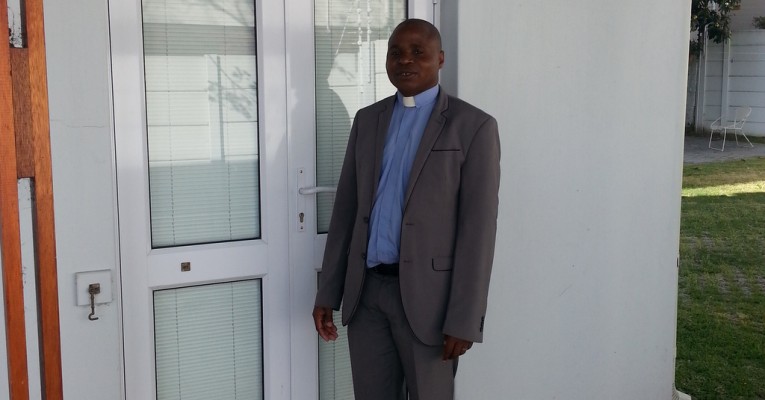In January 2015, the Moderator-elect, Rev. J.J. Gondwe, successfully defended the thesis which he wrote to complete his Master’s studies at University of Stellenbosch, South Africa. We interviewed him to hear more about the work he did:
Rev. Gondwe, which studies were you doing?
After completing my postgraduate diploma in theology at Stellenbosch University which I passed with cum laude (distinction) in 2013, I qualified for Masters in theology degree programme (MTh). My area of study was practical theology where I specialised in Youth ministry. During this study I also covered the following courses: Research methodology and strategic theological planning. This was an empirical research based study conducted in the catchment area of C.C.A.P Synod of Livingstonia.
What was the topic of your thesis?
In my research I looked specifically at child labour and the responses the Synod may have to develop in response to this.
Why did you choose this topic?
My exposure to rural ministry as an ordained minister and also as a Synod Youth Director working directly with some vulnerable children, I was motivated by the observation that child labour is harmful to children. Further observation was that the Synod seems to be doing less if not nothing in addressing child labour practices strategically. Therefore this research aimed at determining whether effects of child labour could be described as a violation of human dignity using theological lens. Furthermore this research attempted to develop a theological framework which the Church of Central Africa Presbyterian (C.C.A.P) Synod of Livingstonia in Malawi could adopt in restoring the human dignity that might have been trodden on in child labour practices.
From your research, what are your major recommendations to the synod?
In the light of violations of children’s dignity in child labour and the role of the church, my research recommends a number of things, among which:
- The synod has to re-orient its ministers about the theological implications of the effects of child labour on the dignity of children. The emphasis could be on the value of a human being as an image of God who deserves equal worthy treatment. In turn these ministers will teach their congregants about how child labour affects children’s dignity.
- Ministers could continue sensitizing people when conducting their pastoral work in their communities about the dangers of exposing children to hazardous work. Parents need to be oriented on the dangers of both short and long term effects of child labour to their children. Most of the parents seem ignorant about these effects. Parents may want to know that if they deny their child access to education today they are preparing their child to be a perpetually poor person. In addition, parents may need to know that once they enter their children into work their relationship shifts from a parent-child relationship to an employer-employee relationship. This becomes a problem in the family.
- The Voice of Livingstonia should be used to broadcast a specific program carrying pastoral messages related to the effects of child labour.
